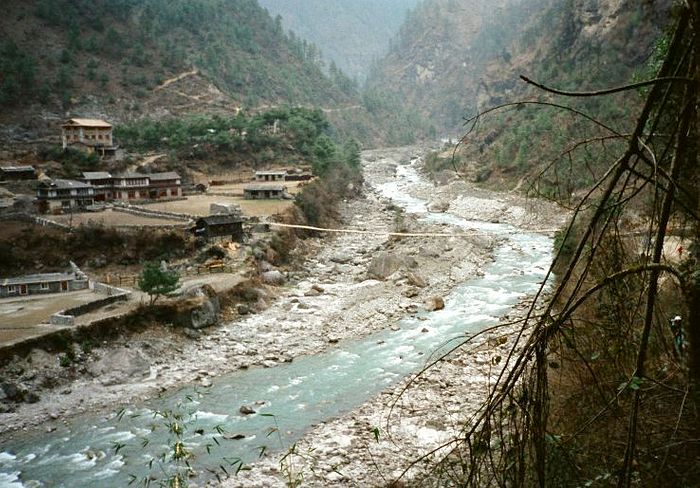The workshop will be held with the objective of providing an opportunity to learn the country background, current context of the basin and to share the objectives and practical aspects of Principles on Investment and Financing for Water-related Disaster Risk Reduction established by HELP. Representatives from Water and Energy Commission, Nepal, High-level Experts and Leaders Panel on Water and Disasters (HELP), Ministry of Land, Infrastructure, and Transport (MLIT), Japan, National Graduate Institute for Policy Studies (GRIPS), Japan International Cooperation Agency (JICA), Embassy of Japan in Nepal and GWP are expected to be present on the day. The inaugural workshop will be followed up by a field-trip to Trijuga River Basin to conduct a stakeholder analysis to deepen the understanding about the economic, social and environmental gaps and available institutional capacity.
GWP South Asia and GWP will promote the project, proposing a Master Plan for Integrated Trijuga River Improvement and Basin Development in collaboration with the Water and Energy Commission, Nepal, HELP and with technical assistance of National Graduate Institute for Policy Studies (GRIPS) and Ministry of Land, Infrastructure, and Transport (MLIT), Japan.
The River:
Trijuga (or Triyuga) River Basin is based at Number 1 Province of Nepal, is located at the border of Siwarik and Terai. The river basin is neighboring to major national transportation networks where the thriving trades and commerce are ongoing internally and externally with India. Currently, Industrial development, irrigation schemes and traditional fishery business are in progress in some patches of the Basin, which indicates its potential to contribute more towards the country’s economic development. Therefore, the Government of Nepal prioritised Trijuga River Basin at Nepal’s policies and programmes for 2019/2020. However, there had been recurrent flooding and other water-related disasters in the basin the mitigation of which will determine future development of all the above and overall sustainable progress of the basin.
Principles on Investment and Financing for Water-related Disaster Risk Reduction
The intended master plan will be developed based on ‘Principles on investment and financing for water-related disaster risk reduction’, which were established by HELP with participation of over 200 decision makers, experts and civil society representatives from 50 countries around the globe. The Principles state that, water-related disaster risk reduction, particularly ex-ante measures, needs to be prioritised. The occurrence of relatively frequent water-related disasters should be forestalled by implementing preventive measures at a lower cost than recovery, while putting the highest priority on protecting human life. Countermeasures should be based on the assumption of large-scale water-related disasters and implemented in order to avoid devastating damages to the society and economy. In case of a large-scale water-related disasters, “Build Back Better” approach should be incorporated into recovery and reconstruction work to improve the resilience of the community and prevent further disasters.
